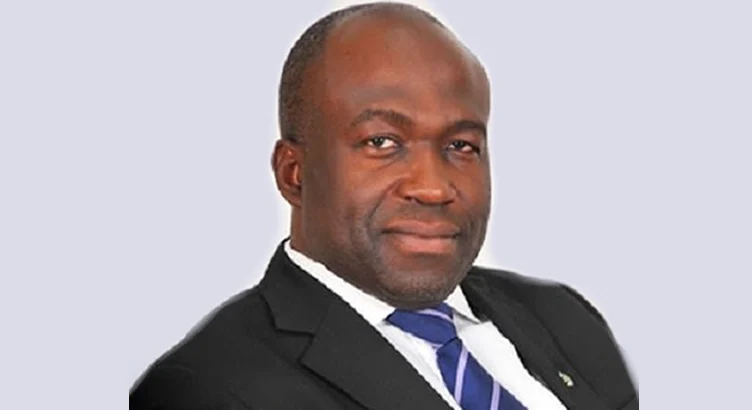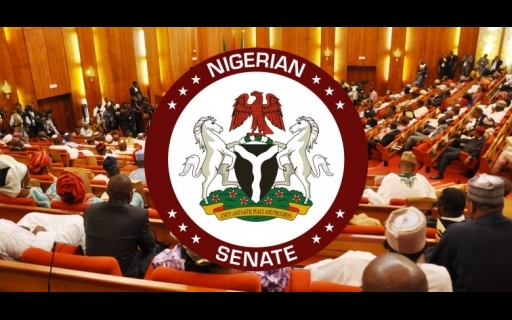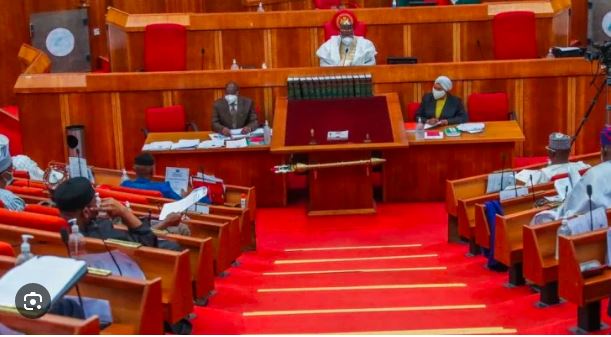Headlines
Power Outages: We Have Settled 87% of Your Invoices, Nigeria Tells Generating Companies

By Derrick Bangura
Nigeria’s federal government announced on Thursday that it had settled approximately N3.5 trillion in power generation companies (Gencos) invoices out of a total of N4 trillion (approximately 87.5 percent) issued by the electricity generators.
According to the Nigerian Bulk Electricity Trading Company (NBET) Plc, a Special Purpose Vehicle (SPV) set up by the federal government to act as an intermediary between power generators and distributors, the amount represents close to 90% of the total debt.
Speaking on the state-owned Nigerian Television Authority (NTA), Managing Director of NBET, Dr. Nnaemeka Ewelukwa, explained that with that amount , the government has shown a strong commitment to keeping the sector afloat despite the challenges of funding.
Although most of the funding is not directly from the federal government, as an intermediary, the NBET collects market remittances for onward payment to the Gencos.
But the new figure runs contrary to the position of the Association of Power Generation Companies (APGC), umbrella body of the Gencos, which during the week stated that the power supply situation in the country was worsening because the generation companies were being owed over N1.6 trillion.
APGC’s Executive Secretary, Dr Joy Ogaji, argued that a situation where the energy dispatched by the power generators is used as an index for power generation capacity was detrimental to the Gencos’ survival.
In the past couple of weeks, the already bad power supply situation in the country had worsened as the players in the sector continued to trade blames as to whose table the buck stops. “Currently, on capacity, we are owed N1.644 trillion,” Ogaji, who speaks for the group stated.
But Ewelukwa, who disputed the figure, maintained that it wasn’t the right time to point accusing fingers, explaining that as a system, the power sector must work together to alleviate the pains currently faced by customers.
“To be very clear, the indebtedness is about one third of that. The government like I said, through NBET has paid close to 90 per cent of what is owed generation companies. So the current debt, just to be clear, is about one third of that. That’s about N555 billion, excluding interest.
“Just to again clarify on the issue of indebtedness, when you hear of NBET’s debts, what I really mean is the sector debt. Now, I mentioned earlier that the total indebtedness stands at about N555 billion, excluding interest.
“Over the 2015 to 2017 markets, when NBET started trading, to date, we’ve received invoices of about N4 trillion from generation companies. Of this N4 trillion, NBET has paid N3.46 trillion and so the balance that you find at the moment, the federal government is working to address holistically the funding challenges of the electricity market,” he stated.
According to him, the federal government has shown “absolute commitment” to ensuring the survival of the power sector by ensuring that even as critical reforms are going on, payments continue to be made to the generation segment to ensure that there’s continuity.
He noted that the government was confronting the challenges in the sector on two fronts: one, by trying to sort out the illiquidity challenges of the market and two, carrying out reforms aimed at sorting out the infrastructural challenges of the power sector.
“So, the narrative regarding NBET role is that NBET is the vehicle through which the federal government is channelling serious funding to what is meant to support the upstream segment of the value chain, that is generation companies,” he stated.
He added that the current issues were neither generation only nor transmission and distribution, but a value chain problem.
To address the issues, he explained that earlier in the week, there was a ministerial meeting of critical stakeholders aimed at ensuring that the sector doesn’t get into a crisis situation, followed by finger pointing.
In his comments, the TCN Acting Managing Director, Mr Sule Abdulaziz, admitted that there have been some issues with the grid, attributable to the fact that “most of the generation stations that are generating light have one issue or the other.”
“Most of the issues are related to the lack of gas. Some of the units out there have no gas to put them on. Some are on general maintenance, whereas we have one or two issues of vandalism.
“A line was vandalised and we lost three units at Okpai. So all these contributed to the number of megawatts that are coming to the grid. For almost two, three years in this country, what we normally have every day is around 5,000 megawatts. Sometimes it will go down to 4,000 megawatts or 3,500 megawatts.
“But with this situation we are in now, the megawatts have run down to almost 3,000 megawatts and 3,000+ megawatts.
“Now the grid is very fragile. It cannot stand all these changes. And unfortunately on Monday, we had system disturbances, meaning that the grid went down. The same thing happened on Tuesday,” he stated.
But he added that the grid had been restored, assuring Nigerians that “we are on top of the situation and things are getting better now.”
“We have an installed capacity of around 13,000 megawatts. So if all these units will work and there are no questions of gas, no question of water on the hydro, we are even able to generate 13,000 megawatts, not even 7, 000megawatts that you are talking about.
“ So, it is just because of some factors, that’s why we’re not getting the required power we need,” he explained.
Headlines
Noble Ladies Champion Women’s Financial Independence at Grand Inauguration in Abuja

Women from diverse backgrounds across Nigeria and beyond gathered at the Art and Culture Auditorium, Abuja, for the inauguration and convention of the Noble Ladies Association. The event, led by the association’s Founder and “visionary and polished Queen Mother,” Mrs. Margaret Chigozie Mkpuma, was a colourful display of feminine elegance, empowerment, and ambition.
The highly anticipated gathering, attended by over 700 members and counting, reflected the association’s mission to help women realise their potential while shifting mindsets away from dependency and over-glamorization of the ‘white collar job.’ According to the group, progress can be better achieved through innovation and creativity. “When a woman is able to earn and blossom on her own she has no reason to look at herself as a second fiddle,” the association stated.
One of the association’s standout initiatives is its women-only investment platform, which currently offers a minimum entry of ₦100,000 with a return of ₦130,000 over 30 days—an interest rate of 30 percent. Some members invest as much as ₦1 million, enjoying the same return rate. Mrs. Mkpuma explained that the scheme focuses on women because “women bear the greater brunt of poverty” and the platform seeks “to offer equity in the absence of economic equality.”
Education is also central to the Noble Ladies’ mission, regardless of age. Their mantra, “start again from where you stopped,” encourages women to return to school or upgrade their skills at any stage in life. The association believes that financial stability is vital in protecting women from cultural practices that dispossess widows of their late husbands’ assets, while also enabling them to raise morally and socially grounded families.
Founded on the vision of enhancing women’s skills and achieving financial stability, the association rests on a value system that discourages pity and promotes purpose. “You have a purpose and you build on that purpose to achieve great potentials and emancipation,” Mrs. Mkpuma said.
A criminologist by training and entrepreneur by practice, she cautions against idleness while waiting for formal employment. “There are billions in the informal and non-formal sectors waiting to be made,” she said, rejecting the “new normal of begging” and urging people to “be more introspective to find their purpose in life and hold on to it.”
Mrs. Mkpuma’s management style keeps members actively engaged, focusing on vocational skills and training to prepare them for competitive markets. She is exploring “innovative integration of uncommon technologies” and is already in talks with international franchises to invest in Nigeria, with Noble Ladies as first beneficiaries.
The association’s core values include mutual respect, innovation, forward-thinking, equal opportunity, and financial emancipation. With plans underway to establish a secretariat in the heart of Abuja, the group aims to expand its impact.
The event drew high-profile guests, including former Inspector General of Police, Mike Okiro, and a host of VIPs, marking a significant milestone in the association’s drive for women’s empowerment.
Headlines
NEPZA, FCT agree to create world-class FTZ environment

The Nigeria Export Processing Zones Authority (NEPZA) has stepped in to resolve the dispute between the Federal Capital Territory Administration and the Abuja Technology Village (ATV), a licensed Free Trade Zone, over the potential revocation of the zone’s land title.
Dr. Olufemi Ogunyemi, the Managing Director of NEPZA, urged ATV operators and investors to withdraw the lawsuit filed against the FCT administration immediately to facilitate a roundtable negotiation.
Dr. Ogunyemi delivered the charge during a courtesy visit to the Minister of the Federal Capital Territory, Barrister Nyesom Wike, on Thursday in Abuja.
You will recall that the ATV operators responded to the revocation notice issued by the FCT administration with a lawsuit.
Dr. Ogunyemi stated that the continued support for the growth of the Free Trade Zones Scheme would benefit the nation’s economy and the FCT’s development, emphasizing that the FCT administration recognized the scheme’s potential to accelerate industrialisation.
Dr. Ogunyemi, also the Chief Executive Officer of NEPZA, expressed his delight at the steps taken by the FCT minister to expand the economic frontier of the FCT through the proposed Abuja City Walk (ACW) project.
Dr. Ogunyemi further explained that the Authority was preparing to assess all the 63 licensed Free Trade Zones across the country with the view to vetting their functionality and contributions to the nation’s Foreign Direct Investment and export drives.
“I have come to discuss with His Excellency, the Minister of the Federal Capital Territory on the importance of supporting the ATV to succeed while also promoting the development of the Abuja City Walk project. We must work together to achieve this for the good of our nation,” he said.
On his part, the FCT Minister reiterated his unflinching determination to work towards President Bola Ahmed Tinubu’s Renewed Hope Agenda by bringing FDI to the FCT.
“We must fulfil Mr. President’s promises regarding industrialization, trade, and investment. In this context, the FCT will collaborate with NEPZA to review the future of ATV, a zone that was sponsored and supported by the FCT administration,” Wike said.
Barrister Wike also said that efforts were underway to fast-track the industrialisation process of the territory with the construction of the Abuja City Walk.
The minister further said the Abuja City Walk project was planned to cover over 200 hectares in the Abuja Technology Village corridor along Airport Road.
According to him, the business ecosystem aimed to create a lively, mixed-use urban center with residential, commercial, retail, hospitality, medical, and institutional facilities.
He added that the ACW would turn out to be a high-definition and world-class project that would give this administration’s Renewed Hope Agenda true meaning in the North-Central Region of the country.
Barrister Wike also indicated his continued pursuit of land and property owners who failed to fulfil their obligations to the FCT in his determination to develop the territory.
Headlines
Benue IDPs block highway, demand return to ancestral homes

Vehicular movement along the Yelwata axis of the Benue–Nasarawa highway was brought to a standstill on Wednesday as Internally Displaced Persons, IDPs, staged a protest, demanding immediate return to their ancestral homes.
The protesters, believed to be victims of persistent attacks by suspected herdsmen, blocked both lanes of the busy highway for several hours, chanting “We want to go back home”.
The protest caused disruption, leaving hundreds of motorists and passengers stranded.
Eyewitnesses said the displaced persons, many of whom have spent years in overcrowded IDP camps, are expressing deep frustration over the government’s delay in restoring security to their communities.
“We have suffered enough. We want to return to our homes and farms,” one of the protesters told reporters at the scene.
Security personnel were reportedly deployed to monitor the situation and prevent any escalation, though tensions remained high as of press time.
Efforts to reach the Benue State Emergency Management Agency, SEMA, and other relevant authorities for comment were unsuccessful.
-

 Headlines4 years ago
Headlines4 years agoFacebook, Instagram Temporarily Allow Posts on Ukraine War Calling for Violence Against Invading Russians or Putin’s Death
-

 Headlines4 years ago
Headlines4 years agoNigeria, Other West African Countries Facing Worst Food Crisis in 10 Years, Aid Groups Say
-

 Foreign4 years ago
Foreign4 years agoNew York Consulate installs machines for 10-year passport
-

 News1 year ago
News1 year agoZero Trust Architecture in a Remote World: Securing the New Normal
-

 Entertainment3 years ago
Entertainment3 years agoPhyna emerges winner of Big Brother Naija Season 7
-

 Headlines2 years ago
Headlines2 years agoNigeria Customs modernisation project to check extortion of traders
-

 Entertainment2 years ago
Entertainment2 years agoMovie download platform, Netnaija, announces closure
-

 Economy2 years ago
Economy2 years agoWe generated N30.2 bn revenue in three months – Kano NCS Comptroller












